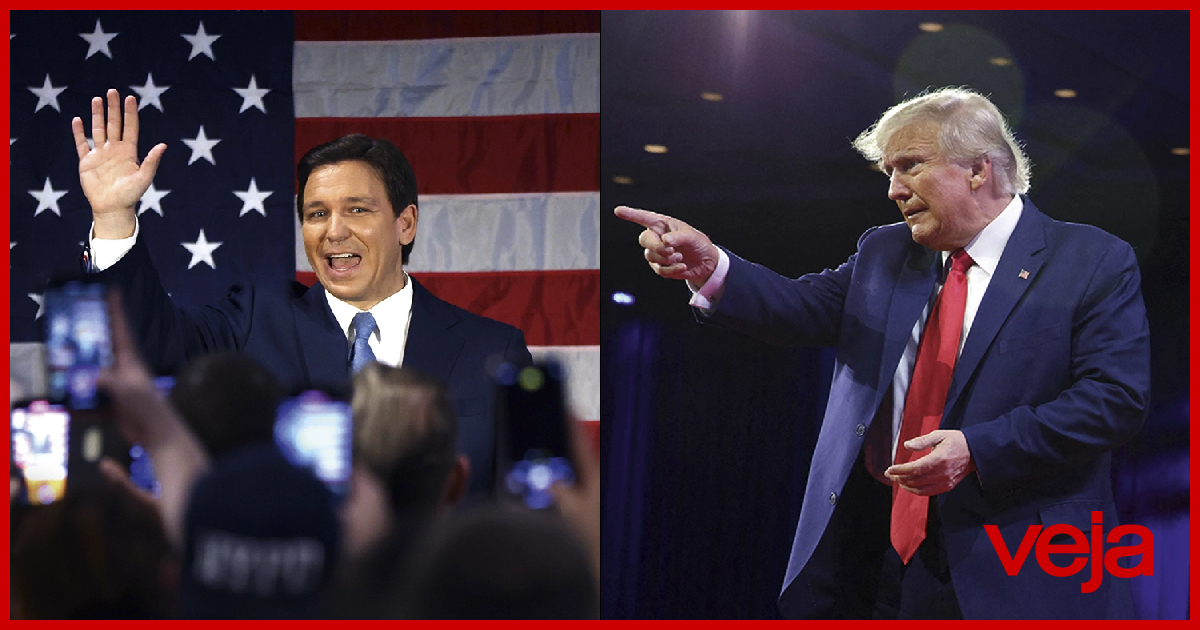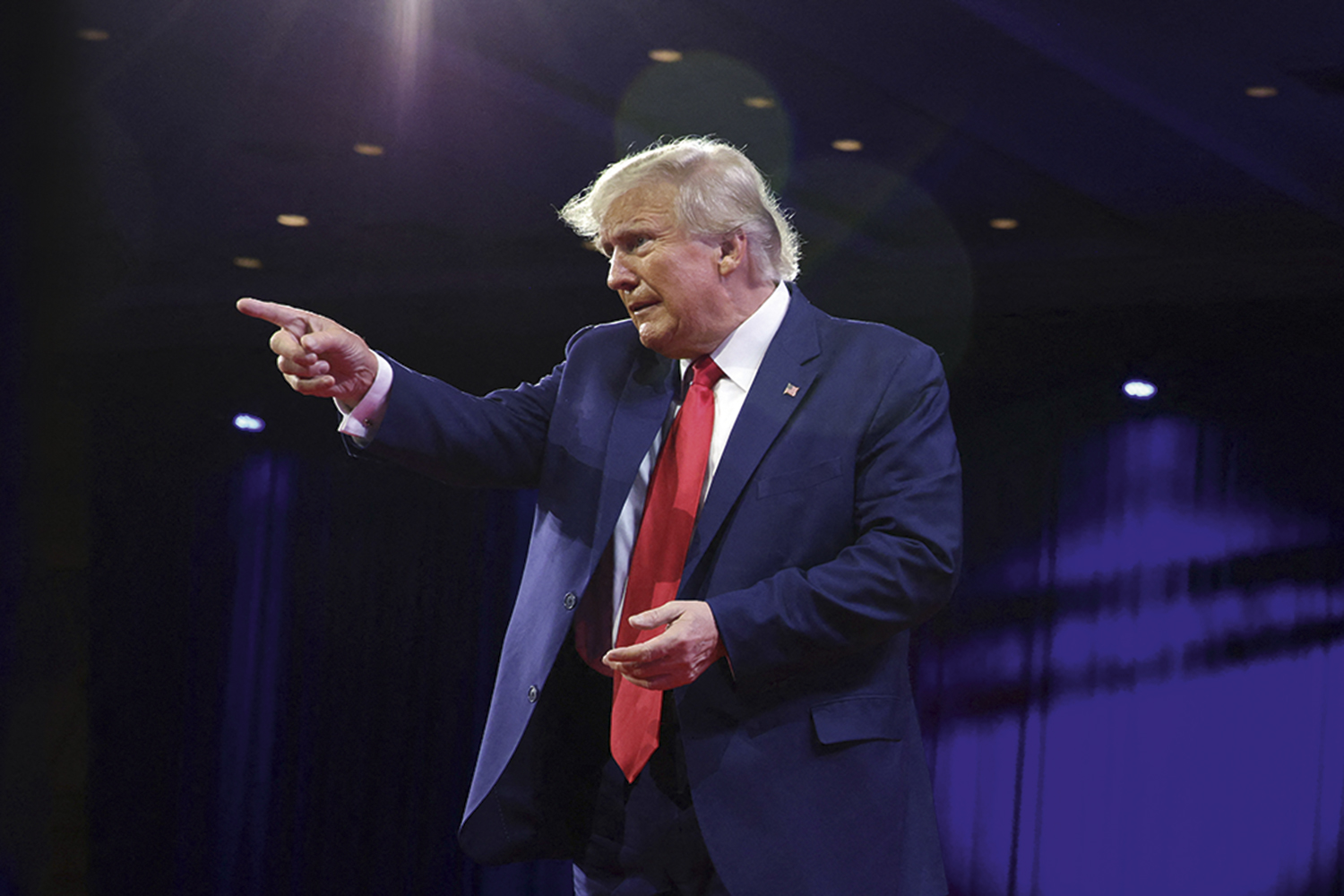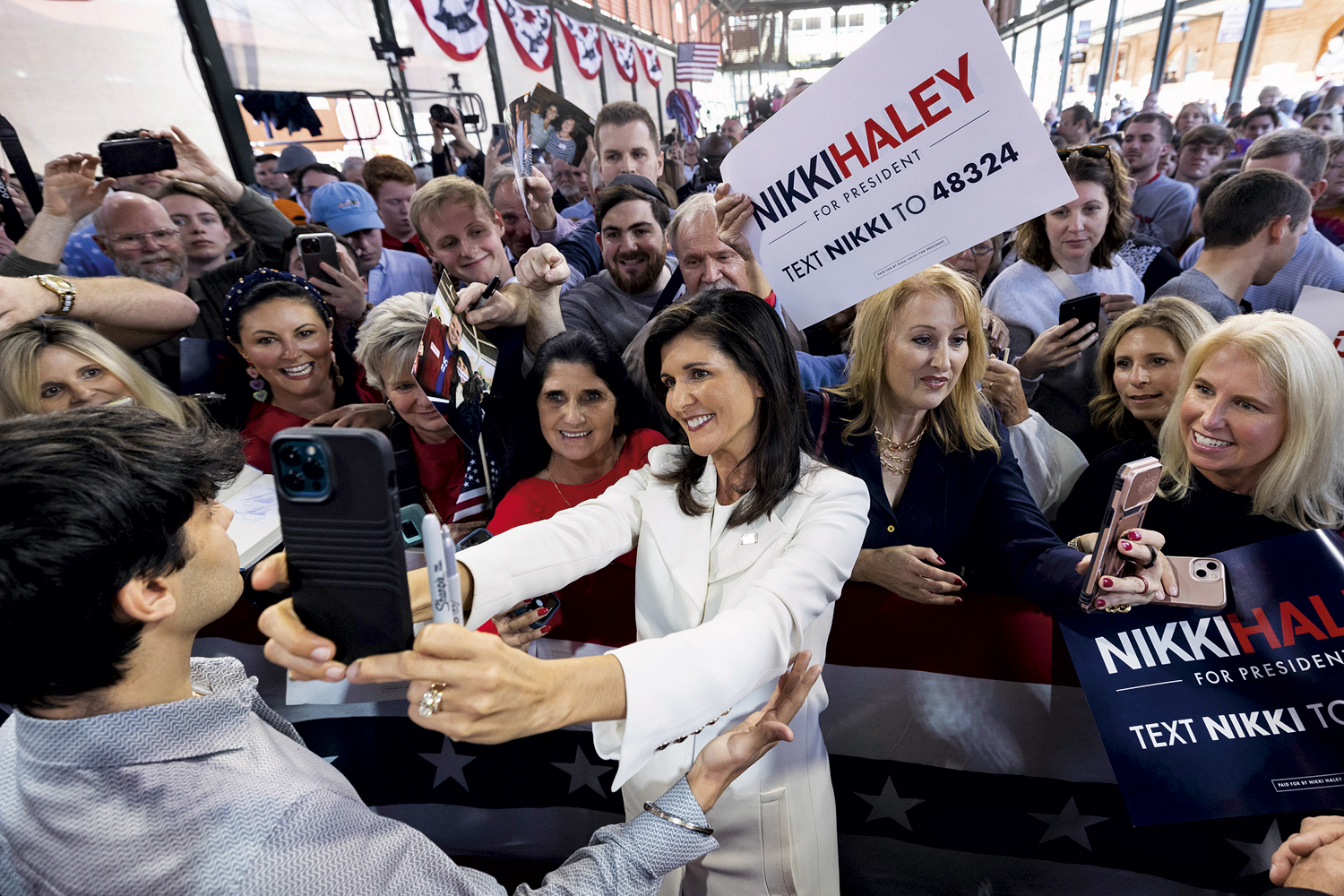USA: The Republican presidential race is heating up
3 min read
Anyone who attended the Conservative Political Action Conference (Cpac) in Maryland last weekend had no doubt who was the star of the event that, every year, brings together today’s main band on the Republican right. and other layers of the same hue. Letters, T-shirts and even cookies sold in the cafeteria featured the ubiquitous face of former President Donald Trump. A mecca of sorts for burgeoning American conservatism, the current meeting served as a platform to promote Trump’s bid for the 2024 presidential election — a race that has already begun, five months before the primaries begin and a year before the election. In full swing, among Republicans vying for the White House nomination.
A characteristic that unites the candidates for the vacancy is precisely their connection to the Trumpist process, universal opposition and ultra-conservative nature, shooting as much as possible the themes appreciated by the awakened culture, according to them, politically correct excesses misrepresent the American spirit itself. With this in mind, two Republicans are already registered in the race – Nikki Haley, former governor of South Carolina and former US ambassador to the UN in the Trump era, and Vivek Ramasamy, a young biotechnology entrepreneur.

However, the biggest challenger to the favored former president so far has yet to officially enter the race, scheduled for May: Florida Governor Ron DeSantis has, among other efforts, banned teachers to prevent discussions on gender diversity. By protestors such as Don’t Say Gay (don’t say the word gay). He also runs an anti-Disney campaign aimed at removing tax breaks from a company that “threatens the American family through its progressiveness.” Among the frenetic seams emerging behind the scenes, former Vice President Mike Pence and former Secretary of State Mike Pompeo are also trying to make themselves viable, but, far from Trumpism, they start at a clear disadvantage.
Defeated in 2020 by Joe Biden in a controversy he claims was rigged, Trump remains the most popular of the leaders on the right. A recent poll by the YouGov Institute found that 37% of Republicans support the former president’s candidacy, but that doesn’t mean he will have an easy life. By the same measure, DeSantis, a holder of diplomas from Harvard and Yale universities, has varnished his resume and emerged as the favorite of 35% of voters, constructing a technical tie. Trump, bogged down in lawsuits, guarantees that even the possible impeachment of the judge who will fire him so hard will not spare him, and continues in his usual messianic tone, criticizing the “mutations” within him. own party. “In 2016, I told you: I am your voice. Today, I’ll add: I’m your warrior,” he said, ending a rally in Maryland where former President Jair Bolsonaro drew applause from the audience. “Trump may still be the top name for the Republican nomination, but he’s no longer the absolute leader of the brief,” said the University of South Carolina political scientist. Scientist Robert Oldendick assesses.
 Spray for what you want – Former Gov. Nikki Haley: Strategy not to clash with Trump (Mike Smith/AP/Image Plus)
Spray for what you want – Former Gov. Nikki Haley: Strategy not to clash with Trump (Mike Smith/AP/Image Plus)His opponents are trying to balance themselves in a delicate equation — they defend the same conservative handbook, each with their own inks, but they are well aware that they must separate themselves from Trump. That is why they run away from conflicts, but throw divisions everywhere. Former ally Nikki Haley reiterates the idea that the country needs to renew its leadership and waved the flag for requiring cognitive tests for politicians over 75 — Trump would get a 78 in the election. DeSantis, sponsored by the former president, has strategically distanced himself from him in 2018 after winning a re-election bid for Florida governor. Now, he’s pulling a trump card—his newly released book Dare to be free (A Courage de Ser Livre), in which he points out the steps he followed in Florida and intends to publicize throughout the country with the aim of increasing momentum for the presidential fight. The controversial governor has become well-known under the spotlight of the pandemic, as he has opposed social distancing and turned the gears of the economy on, even as his state counts more victims of the virus than others.
Dissatisfaction with the effects of globalization and the rise of inequality opened space for all forms of populism in the United States, revealing a path to the right represented by Trumpism. Extremism, in fact, is more deeply rooted in the Republican Party than in the Democratic Party, which is explained by the nature of each organization. “The Democratic Party is a multiracial coalition whose diversity and commitment to political goals favors pragmatism,” says Furman University’s Jim Guth. “Republicans are racially and ideologically very homogenous, which makes them very united and reactionary,” the professor says. This was not always the case in the association that emerged in 1854, where various parties debated among themselves without grasping crystallized truths, but the process that led to what we see today had already taken shape since Ronald Reagan’s administration. In the 1980s, Trump deepened and established a conservative view of history, which a well-established American democracy certainly did not require.
Published in VEJA on March 15, 2023, version no. 2832

“Communicator. Award-winning creator. Certified twitter geek. Music ninja. General web evangelist.”





